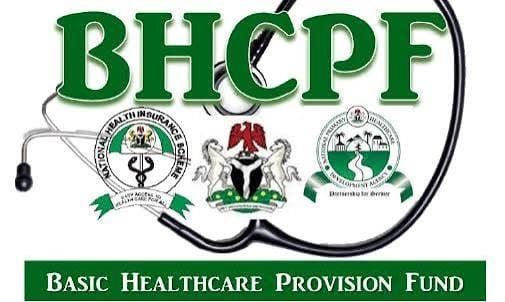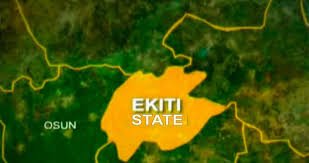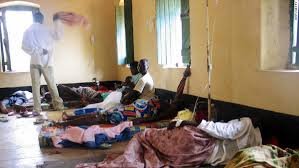
…Silenced Survivors, Gagged Health Workers, and a Failing System That Demands Presidential Action
BAUCHI, Nigeria – The stench of cholera is choking Bauchi State, and the silence is deafening. Fifty-eight people are already dead, more than 258 others are battling for survival, yet the very voices that should tell this story—survivors, grieving families, and frontline health workers—are gagged. Government officials alone control the narrative, turning a public health emergency into a managed press statement.
In communities where burials now outnumber celebrations, families whisper their grief in fear, health workers are warned against speaking, and journalists are turned away from treatment centres. This blackout has denied Nigeria the truth about a crisis that has become a predictable, deadly ritual. It raises the urgent question: why should Bauchi’s poor die in silence while the world hears only the governor’s version?
The scale of this tragedy is such that President Bola Ahmed Tinubu cannot ignore it. Cholera’s resurgence in Bauchi is not just a state matter—it is a test of Nigeria’s resolve to protect its citizens from preventable deaths. As the figures rise and transparency collapses, the need for federal intervention becomes unavoidable. Silence is no longer an option. Hussaini Ibrahim, writes
Government’s Narrative of Control
At the helm of the state’s response is Bauchi’s Deputy Governor, Alhaji Muhammadu Auwal Jatau. He announced the deaths and infections while inaugurating two committees: one to manage cholera and another to provide technical expertise.
His message was one of assurance: cholera can be prevented with proper measures, and Bauchi has a long-term strategy aligned with national and international frameworks.
“We cannot afford to let cholera define us,” Jatau declared, pledging loyalty to Governor Bala Mohammed and urging professionalism and zeal from committee members.
Development partners such as WaterAid welcomed the committees but with scepticism. “Without concrete investment in clean water and sanitation, cholera will persist as a seasonal crisis,” warned Mr. Mashat Mallo, WaterAid’s State Coordinator.
His cautionary words clashed sharply with the government’s tone of confidence.
Attempts to reach Bauchi’s Health Commissioner, Dr. Sani Mohammed Dambam, failed—his phone line, like the survivors’ voices, remained silent.
Survivors Silenced, Realities Concealed
Beyond the official podiums lies a troubling blackout. Families who buried loved ones whisper their grief in private. Health workers, already stretched beyond capacity, are banned from publicly describing overcrowded wards, shortages of drugs, or their exhaustion.
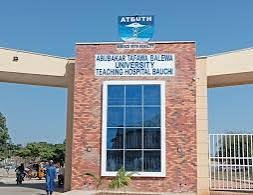
For health rights advocates, this silence undermines accountability. Public health thrives on transparency, and muzzling those who live and fight the crisis is not only inhumane but dangerous. By reducing cholera to numbers, officials strip it of its human cost.
National Picture: A Worsening Cholera Burden
Bauchi’s outbreak mirrors a national health emergency. Data from the Nigeria Centre for Disease Control and Prevention (NCDC) shows cholera cases jumped by 75 per cent in early 2025 compared with the same period in 2024. Deaths skyrocketed by 250 per cent.
In many Bauchi communities, residents still rely on shallow wells and streams easily contaminated by waste. Sanitation facilities are inadequate, while waste disposal systems are broken. In urban slums, cholera thrives predictably with every rainy season.
Expert Insight: A Cycle of Neglect
A medical doctor at the Kingsgate Hospital, Kano, Dr. Abubakar Abdulkadir frames the crisis with stark clarity. “Cholera is not unpredictable. It thrives because the conditions that spread it—dirty water, poor sanitation, weak waste management—are left unchanged year after year.”
Silencing survivors and health workers, he said, removes crucial intelligence. “Survivors know where water is contaminated, and health workers know where resources fall short. Ignoring them detaches the response from reality.”
Dr. Abdulkadir also warned of the economic burden: “Every life lost is a farm abandoned, a classroom emptied, or a breadwinner gone. Cholera is not only a health crisis—it is an economic and social catastrophe.”
Recurring Failures, Recycled Promises
Committees and emergency treatment centres have become Bauchi’s yearly ritual. Once the outbreak ends, urgency evaporates, funding dries up, and communities slip back into vulnerability.
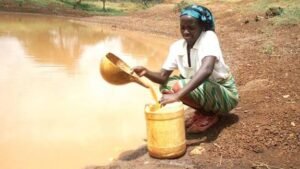
Civil society leaders insist the problem is not lack of plans but failure of implementation. Dr. Abdulkadir was blunt: “Unless water and sanitation are treated as infrastructure as vital as roads and electricity, Bauchi will be here again next year, counting more graves.”
The Human Cost: Beyond Numbers
Behind every statistic is a shattered home. In rural villages, losing a breadwinner can collapse a household economy overnight. Children are orphaned, widows left destitute, and elderly parents forced to shoulder impossible burdens.
Health workers, meanwhile, toil under severe strain. Their exhaustion and daily struggles remain hidden from public view. By gagging them, the government denies society vital lessons from the frontlines.
Transparency: A Tool, not a Threat
Why silence voices in a health crisis? Observers suggest fear—fear that open testimony might reveal inadequacies in the state’s response. But critics argue that transparency is not a threat but a tool.
“When communities speak freely, problems are clearer and solutions emerge faster,” noted one health advocate. By silencing survivors, Bauchi risks creating a façade of control while cholera quietly spreads.
A Path Forward: Beyond Committees and Silence
Bauchi’s path forward demands bold, practical reforms:
Massive investment in water and sanitation infrastructure: boreholes, sewage systems, and waste disposal facilities.
Community-led sanitation programmes: empowering residents to own and sustain hygiene practices.
Consistent, year-round funding: not only during outbreaks.
Open communication channels: survivors and health workers must be allowed to share experiences to guide policy.
Without these, experts warn, cholera will remain a seasonal tragedy.
A Presidential Test of Leadership
As Bauchi buries dozens of its citizens, the crisis remains half-told. Government committees project order, but without transparency and sustained investment in clean water and sanitation, cholera will return again—and more graves will be dug.
This is no longer just Bauchi’s shame. It is Nigeria’s test. President Bola Ahmed Tinubu must summon Governor Bala Mohammed to explain why survivors and health workers are silenced, why sanitation remains neglected, and why cholera still claims lives in 2025.
Cholera is more than a disease—it is a symptom of systemic neglect. And unless the Presidency compels urgent action, silence will not protect Bauchi. The next wave of infection is already waiting.

